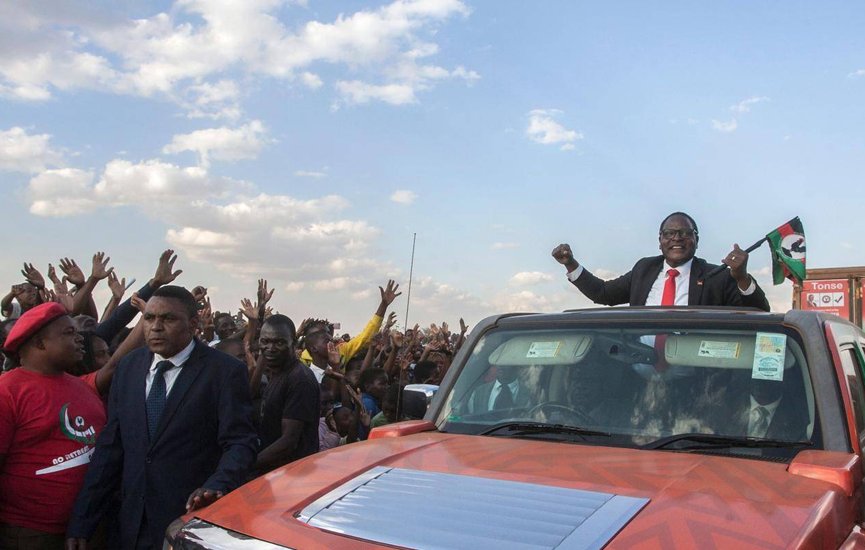Malawi is preparing for a presidential election this week, as the nation struggles with an ongoing economic crisis, food and fuel shortages, and the aftermath of a contentious election six years ago that was annulled due to widespread irregularities.
Incumbent President Lazarus Chakwera, a former theology lecturer and preacher, was the challenger in the 2019 election, which was initially won by then-President Peter Mutharika but was later nullified by the country’s highest court. Chakwera won the subsequent re-run of the election the following year.
Now, at 70, Chakwera is seeking a second term with the Malawi Congress Party, while Mutharika, 85, of the Democratic Progressive Party, hopes to return to power. They are widely considered the main contenders in the election, which features 17 presidential candidates, including former President Joyce Banda. Voters will also choose lawmakers for Parliament and more than 500 local council members.
Shift in National Mood
Five years ago, Chakwera’s eventual victory was supported by widespread street protests, but the national mood has shifted after five difficult years. This election is taking place amid economic struggles and a decline in trust in public institutions in the country of 21 million people.
Inflation has skyrocketed, and there are severe shortages of fuel and sugar. Cyclone Freddy in 2023 and a drought linked to El Niño in 2024 devastated crops and worsened food insecurity. Additionally, the death of Vice President Saulos Chilima in a plane crash last year further rocked the nation.
“Malawians are weary,” said political analyst Boniface Dulani. “They want results, not just rhetoric. This election is a reflection of that frustration.”
Dulani believes that Mutharika’s strong challenge to return to the presidency is less about his popularity and more a result of disillusionment with Chakwera’s leadership.
A New Electoral Law
The 2019 election scandal led to changes in Malawi's electoral law, and this year’s election will follow the 50%+1 rule, meaning the winner must secure more than 50% of the vote. Analysts predict that no candidate will secure a majority in the first round, likely resulting in a runoff between Chakwera and Mutharika.
For many voters, the most pressing concerns are the rising cost of food and fertilizer. Malawi, a landlocked nation heavily dependent on agriculture, sees over 80% of its population living in rural areas and relying on small-scale farming. Its largest export is tobacco.
Mutharika’s Campaign
Mutharika has campaigned on a return to “trusted leadership,” a message that resonates with some voters. Eliza Justin, a 34-year-old market trader, stated, “Things were better under Mutharika. Back then, we could afford fertilizer, and everyone was able to grow corn. Now, prices are killing us. We need Mutharika back to save us.”
However, Mutharika has been largely absent from the campaign trail, raising concerns about his age—if elected, he would be 90 at the end of his term. Additionally, his choice of running mate, the former head of the electoral body that oversaw the annulled 2019 election, has sparked allegations of potential collusion between his party and election officials.
Chakwera’s Struggles
Chakwera has been more visible in his campaigning, but analysts like Dulani believe he is “burdened by an economy in freefall” and has failed to meet expectations. Under his leadership, inflation has surged from 8% in 2020 to 27%, deepening poverty in the country.
The death of Chilima, a popular figure among young Malawians and considered a future presidential candidate, added to the sense of disappointment in Chakwera's leadership.
Despite this, some Chakwera supporters argue that voting for Mutharika would mean reverting to the past. “We’re looking forward, not backward,” said Aubrey Kachiwala, a taxi business owner.
With the Malawi Electoral Commission overseeing the election, there is heightened scrutiny after the chaos surrounding the 2019 election, adding an extra layer of tension as voters head to the polls.
